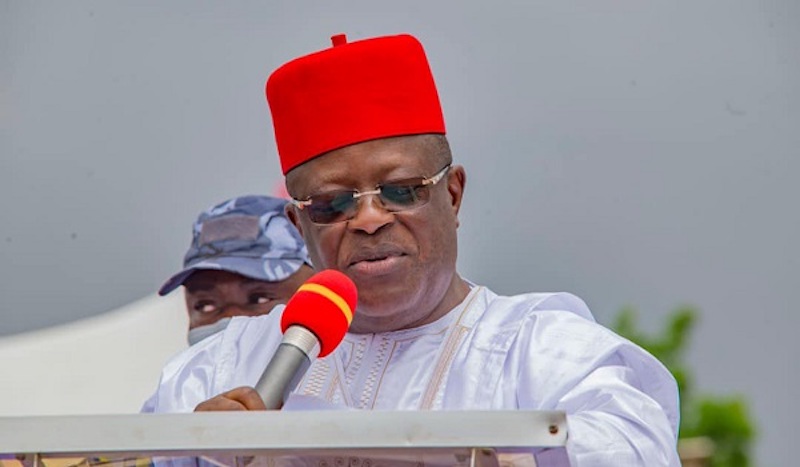The Minister of Works, David Umahi, has openly responded to Governor Seyi Makinde of Oyo State following the latter’s remarks concerning the Lagos-Calabar Coastal Highway project.
Speaking on Saturday during an inspection of the Abuja–Mararaba–Keffi Road alongside Nasarawa State Governor Abdullahi Sule, Umahi described himself as a senior to Makinde both in engineering expertise and governance experience.
The disagreement began after a recent Arise Television interview, where journalist Rufai Oseni questioned the minister about the cost per kilometer of the ongoing coastal highway project. Governor Makinde later backed Rufai’s inquiry, accusing Umahi of “dancing around” the actual cost and failing to give clear answers.
However, Umahi fired back, stating that while he respects the Nigerian Governors Forum, he would not hesitate to respond when “a governor far his junior” publicly challenges him.
“I have a lot of respect for governors and the Governors Forum,” Umahi said.
“But if a governor who is far my junior in engineering and governance insults me, I will respond. One thing I am very good at is Mathematics — I was an A student.”
Defending the project’s financials, Umahi explained that the Lagos-Calabar Coastal Highway spans approximately 43 kilometers, recently extended to 45 kilometers using funds allocated by the previous administration, totaling ₦73 billion.
He further clarified that construction materials and methods significantly affect costs.
“If we are doing surface tracing on the shoulder, the cost will differ. If we’re using asphalt, it will differ. If we’re using concrete, as we currently are, the cost changes again,” he explained.
Umahi concluded that asking for a flat cost per kilometer without understanding the technical variations was “mischievous,” adding that such figures can only be determined after professional evaluation and section-based analysis.
Key Takeaway:
The heated exchange between Umahi and Makinde highlights the growing scrutiny around major infrastructure projects in Nigeria — and the importance of transparency in government spending.

